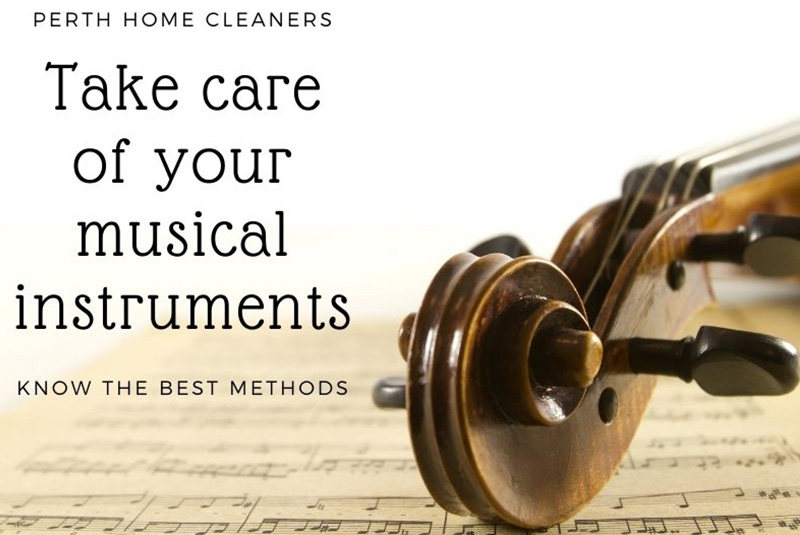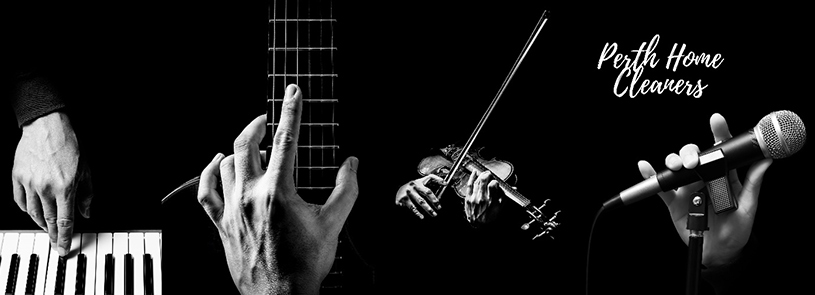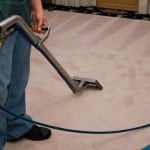Spills and stains can affect the general appearance of your carpet, especially when left on for a very long time. This is Wine and Coffee Stain why it is important…
Methods To Adopt In Cleaning Your Musical Instruments
- By Perth Home Cleaners
- On June 6, 2024
The care and maintenance of musical instruments is an integral part of making music and is also essential to the musician’s health. The possibility of passing on and contracting infectious diseases through musical instruments is very high. Therefore, taking care of and regularly cleaning musical instruments is of utmost importance, and it also minimises the risk of infection amongst musicians.
 In reality, viruses don’t live very long on hard surfaces, but some might give you a hard time. That’s why musicians have to pay attention to the maintenance of their instruments.
In reality, viruses don’t live very long on hard surfaces, but some might give you a hard time. That’s why musicians have to pay attention to the maintenance of their instruments.
If you’re cleaning a wind instrument, the mouthpiece is an essential part to clean. As this is the part of the instrument that musicians put in their mouth or close to their mouth, it’s the part that carries the most risk. It harbors the highest number of bacteria, which can be easily passed on from one musician to another (if the instruments ever get shared, which isn’t appropriate). Learning how to generally care for musical instruments and specific methods to clean particular instrument types is vital for all musicians.
 General Care for Musical Instruments
General Care for Musical Instruments
When the instrument is not in use, the musician must make sure it’s stored properly. They must also ensure that accessories such as locks, zippers, hinges, and case handles are in working order.
Don’t place anything on top of the instrument, and don’t place anything except for the instrument itself in its case.
Keep the instrument around room temperature without drastic changes. This is because temperature fluctuations can cause damage or warping.
Do not leave instruments inside a car as this exposes it to fluctuations in humidity and hot/cold temperatures.
If the instrument is moved from an area with a colder temperature to another with warmer temperature, the musician must ensure that they allow it to warm before they start to play it.
The instrument must be clean of fingerprints, residue, and everyday dust. Musicians can ensure this by wiping the instrument using a non-treated, soft, and clean cloth before the instrument is stored.
If any of the instruments develop any fault or need repair, the owner should not repair it at home. It should instead be taken to a trained professional that can properly repair musical instruments.
Musicians should try to insure their musical instruments in case of damages or theft.
The list above is some of the general care for most musical instruments. However, there are some other ways to care for specific groups of instruments.
 How to Take Care of String Instruments
How to Take Care of String Instruments
In taking care of string instruments, musicians should never place their hands directly on the instruments’ varnished parts.
They must ensure that the instruments don’t come into contact with hard items such as buttons, zippers, and jewellery, as this can leave scratch marks.
If these is a shoulder rest, it should be stored in a separate bag and not in the instrument case.
The instruments must be set down or stored string-side up at all times, even if it’s in the case.
Household or commercial solvents must never be used on a string instrument. If there’s a need for a cleaner or polish, musicians should look to music stores to purchase one. They must also test it on an inconspicuous spot to make sure that it’s compatible with their varnish.
They have to ensure that the rosin doesn’t build up on the instrument by using an instrument polish as regularly as every two to four weeks.
Replace the strings every year. New musicians can ask someone trusted and more experienced to help them with this if it’s their first time, or if they don’t know how. When replacing the strings, do it gradually, not all at once. This reduces the tension on the strings. Whoever is changing the strings must wash their hands before doing so.
If the strings break repeatedly, the owner has to take the instruments to technicians or other experts to make all the necessary adjustments to it.
The instruments can be tuned with a tuning peg, and minor adjustments are made using the fine tuners. The tuning pegs are kept from slipping by the peg drops.
Be careful with the bow! Users shouldn’t touch the bow’s hair because finger oils can prevent the rosin from sticking, and it might also shatter as it is fragile.
Common examples of strings instruments are violin, double bass, cello, and viola.
 How to Take Care of Wind Instruments
How to Take Care of Wind Instruments
When wind instruments are placed in their case, every part must fit into the correct indentations. The case shouldn’t be forced. If it is, then it means you aren’t playing the instrument correctly.
The neck straps should be off the neck of the instruments before placing it into the case.
A saxophonist should use a tenon plug when they want to store their instrument.
Never pick up the instrument by the keys; hold it by the bore. It is also important to be careful when assembling the instrument so that the keys don’t bend.
Don’t eat or drink anything sugary or chew gum immediately before you play a wind instrument.
Internal moisture can bring about mildew or cracks. Users must ensure that they pull a dry and clean swab through the instrument to clean it and remove as much moisture as possible.
Before storing, wipe keypads gently to get rid of moisture.
Apply cork grease to cork joints when necessary.
The reed should never be stored on the mouthpiece. It should instead be stored in a reed holder. If the reeds are cracked, chipped, or softened, they should be replaced.
Clean the mouthpiece (without the ligature and reed attached) with warm and soapy water. Make sure it is completely dry before storing.
Regularly check and clean the instrument’s mechanisms in case there’s a loose screw. Tighten the pivot for any key that feels loose until there are no more wobbles.
The manufacturer’s key oil should be used to grease the keys every year. Apply just one drop to the needle pin. Be careful not to add too much oil.
Common examples of wind instruments include flute, saxophone, oboe, and clarinet.
How to Take Care of Brass Instruments
When putting the instrument back in the case, users have to ensure that all the correct indentations fit in. Endeavor not to forcefully close the case as this means that the instrument is poorly placed.
Do not place the instrument back into the case before it is dry. The instrumentalist should take their time to drain all the water in it after playing and then wipe it with a soft, clean, and dry cloth.
Brass instruments require yearly professional cleaning to avoid possible corrosion and costly repairs.
Stay away from chewing gums and eating or drinking sugary liquid immediately before you play the instrument.
Once the user is done playing, they should always remove the mouthpiece. The mouthpiece should also be cleaned using mild soap and warm water.
If users notice that the mouthpiece is dry, they can apply a tiny valve oil layer to the bore. This will prevent it from being stuck. However, if the mouthpiece becomes stuck, a mouthpiece puller can be used to remove it. Users should never twist the mouthpiece forcefully.
When bare brass sticks are left alone for some time, they tend to stick together. So, users have to make it a duty to move them several times over a short while. Just do it as regularly as possible.
The horn key valves should be oiled as regularly as three times every week by placing one or two drops of the oil to the rotors and bearings. Then they can work the valve several times so that the oil can spread evenly across the valves.
Add some oil to the bottom cap and valve cap. After unscrewing the trumpet’s valves, wipe it clean before coating the whole valve with one or two drops of the valve oil.
The trombone should be oiled at least once per week. The user can do this by putting the hand slide in the third position, and then they add the oil to a different slide.
The tuning slides can be lubricated with lanolin or some other oil like it.
If there’s a dent, it should never be hammered out at home. The instruments should be taken to a professional with a license.
Common examples of brass instruments include trumpets, horns, trombones, and tuba.
 Bottom Line
Bottom Line
In taking care of their musical instruments, musicians have to know that they are doing this to protect themselves and their health. The good thing is there are portable care kits that musicians can use to clean and maintain the instruments. From polishing to cleaning agents such as patches, brushes, cloths, the components of different kits might differ based on the instrument. The bottom line is taking care of your instruments is essential, and you might need to get a cleaning kit to make sure it’s done properly.
Related Posts
-
Tips for Carpet Cleaning
-
10 General Rules of House Cleaning
House cleaning is one of those things that never seems to end, particularly if you have a young family. When you're busy, things pile up, and before you know it…
-
Tips On Cleaning Your Carpets
There are many people fond of having carpet in their home. They know maintaining and taking care of carpet is no easy task. No matter how careful a person is,…
-
Hiring a Construction Cleaning Service in Perth
Why is Builder's Cleaning so Important? In construction, the final stage before handover to a new owner or resident involves a comprehensive cleanup of the property. The builder's cleanup at…
-
How Much Does Professional House Cleaning Cost in Perth, WA?
Cleaning, while essential, can be a tiresome chore for many. In the picturesque city of Perth, where the stunning beaches and vibrant culture captivate you, the last thing you want…






